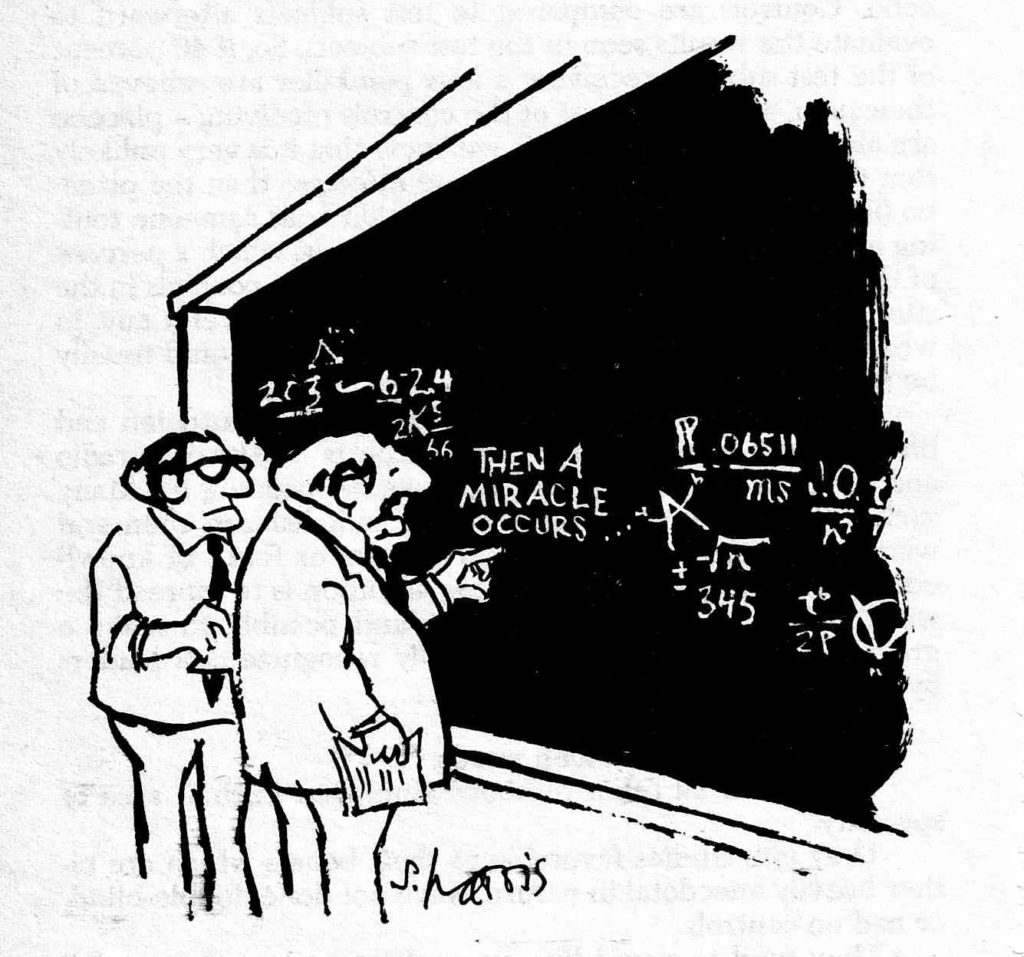
In scientifically sound studies, researchers allow for variations by using a device called controls. Controls are experimental subjects who are exposed to exactly the same conditions as the test subjects—those receiving treatment— except that they do not receive the treatment being tested.
Ideally, this should be the only variable between control and
experimental groups. Controls may or may not receive a placebo. Controls are compared to test subjects afterward to evaluate the results seen in the test subjects. So, if 40 percent of the test subjects receiving a new painkiller are relieved of their pain, and 40 percent of the controls receiving a placebo are also relieved of their pain, we know that it is very unlikely that the proposed painkiller is more effective than the placebo (inactive material). The next time you hear someone touting any form of therapy and citing a study in which x percent of the subjects received benefits, ask about the controls in the study. If none are mentioned, there probably weren’t any, in which case it was a poorly designed study and should usually
be ignored.
An important source of information about nutrition and life extension comes from popular “experts” we hear on radio and see on TV. Which ones should we be listening to? Many such nutrition “experts” are actually cult leaders, men and women who assume the position of guru or fount of knowledge in an organization and whose ambition is to “spread the word” (their own word, of course) and possibly to make a great deal of money. You can usually recognize cult leaders by these characteristics:
- They use emotion-laden words.
- They scorn all other methods employed in their area of
specialty. - They cite studies favorable to their beliefs which are either heavily anecdotal in nature, were not done double-blind,
or had no controls. - They tend to sound like evangelists, high on “pep talk”
but low on technical evidence. - They will not cooperate with attempts of outsiders to determine experimentally what are the effects of their treatments and what are their mechanisms of action. Such
attempts are considered a threat to their monopoly on their
particular intellectual “territory.”
‘ They attempt to limit their clients’ access to data about competitive or alternative methods. In a field as large as gerontology, no one person can know more than a small fraction of the available useful information. Cult leaders are not always entirely wrong, but it is reasonable to think that at best they are only partially correct.
- They have a bad case of the “not invented here” syn-
drome. - They collect acolytes who preach “the word.”

Among the examples of cultist “experts” are many health-food advocates who are heavily biased against anything “chemical,” even though all food, vitamins, nutrients, and, in fact, all the substances of life are chemicals. The scientific selection of the many foods available in nature can enhance the intake of beneficial chemicals such as antioxidants (which retard chemical processes that lead to aging) and vitamins, but such choices must be based on science. An example of a non-cultist popular expert is Dr. Roger Williams, the discoverer of Vitamin B-5 and its life-span-extending effects.
Statistics is a factor to consider in the interpretation of experimental results because it is possible for scientists to honestly disagree on the basis of using different statistical models. In most instances, however, such sophisticated knowledge is not necessary for the type of information you are most likely to be seeking. Elementary statistics texts are numerous and the subject matter is not difficult to learn, if you wish to pursue it. A knowledge of statistics is definitely not necessary to the understanding of the material in this book. However, some familiarity with statistics is required to interpret original scientific papers.
When you shop for books on life extension and nutrition,
the most important single indicator of a book’s probable scientific validity is the bibliography. Take a good look at it before you buy. If the book contains references primarily from respected and reputable scientific journals, it is much more likely to be scientifically sound and of value to you than if references are primarily cited from unscientific sources such as popular lay nutrition magazines and newspapers, especially of the tabloid variety. Do not assume that if a book is written by a doctor
or even a scientist that the data it contains are correct. Check
out its bibliography and reference notes.
Are you interested in life extension products?
mod4all ships all major brands of Modafinil from the UK
All products shipped from the UK by tracked post. We guarantee delivery.
We guarantee delivery, free reshipping.
Any questions at all about payments, shipping, etc. Anything at all, just email us.

Comments (0)